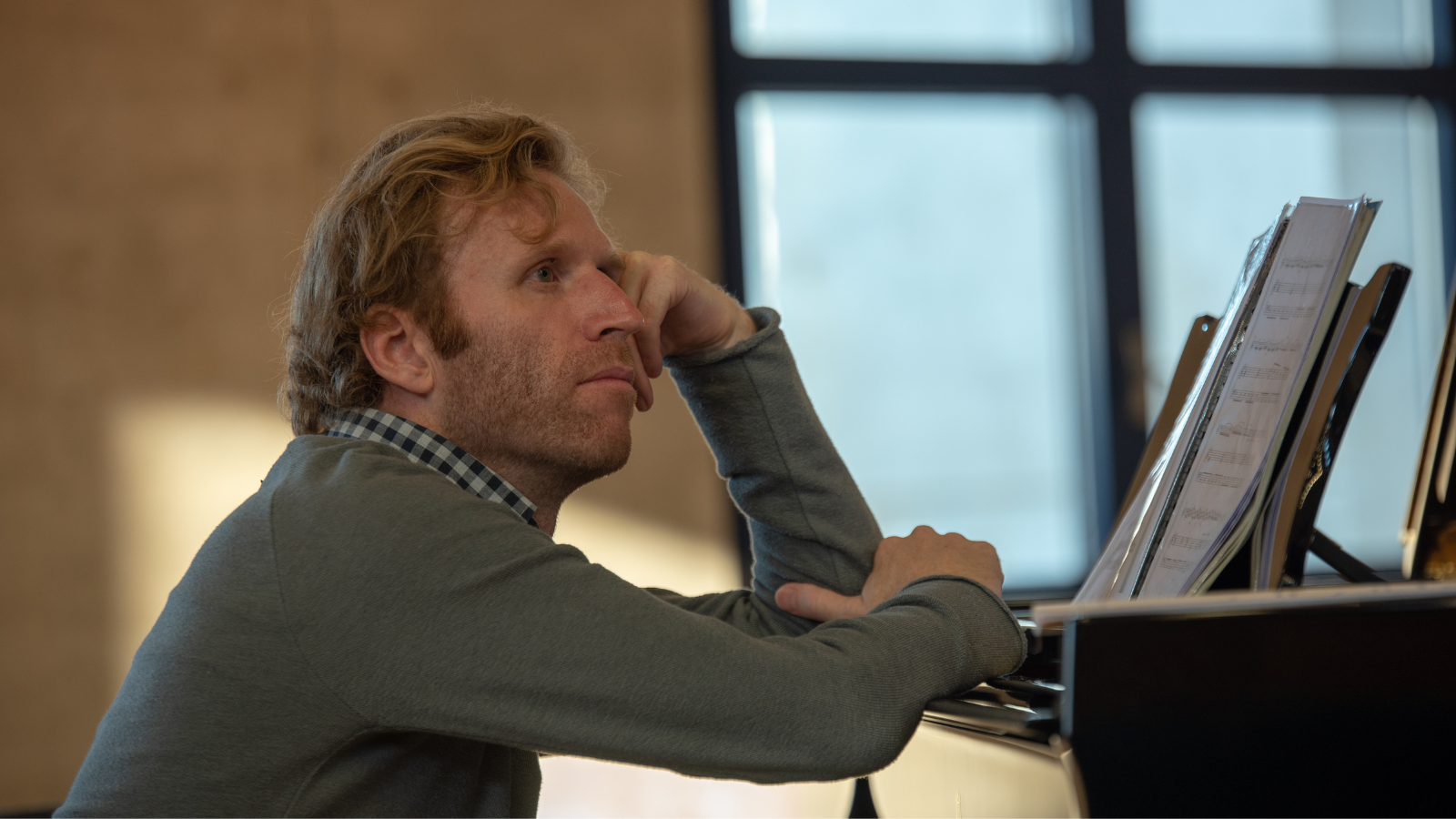This October, our pianists will meet one of ANAM’s alumni from the first cohort of pianists from the ANAM Performance Program, who has since established an extraordinary career on the other side of the world.
Dr Cameron Roberts (piano 1999) was one of ANAM’s earliest pianists, participating in two master course programs in 1998 in Brisbane and Melbourne, during which he was studying both medicine and music at the University of Melbourne. He was accepted into the first year of ANAM’s Advanced Performance Program (APP) in 1999, which was the first year-long training program offered by the fairly new, national training academy. The APP was similar in structure to what our current musicians experience today, with performances, masterclasses and instrumental tuition at the South Melbourne Town Hall.
After his ANAM training, Cameron continued his studies at the University of Melbourne, completing his Master of Music, and a combined Bachelor of Medicine and Surgery. He later relocated to Europe where he pursued further musical training in London before accepting a chamber music teaching job at the renowned Escuela Superior de Música Reina Sofía in Madrid. During this time, he commenced his PhD on the physical and perceptual aspects of ‘How the Pianist’s Touch Affects Tone Quality’, the beginnings of his journey towards understanding – and correcting – the pedagogical misinformation about how the body learns, moves and perceives sound.
Several years later, alongside his performing activities as a pianist, Cameron returned to the UK to complete specialist medical training in anaesthesia and pain medicine. Now based in London, he balances his part-time anaesthetic work with his primary loves as a performer, teacher, speaker and performance coach.

Image of Cameron Roberts by Raymond Conus
His work as a practicing medical doctor and researcher has had a profound impact on Cameron’s understanding of the physical and psychological aspects of performing, learning and perceiving music. His initial interest in wanting to help musicians with physical injuries has expanded into almost two decades worth of enquiry. “Why musicians practice the way they do, and why they believe the rubbish they do, despite being surrounded by a wealth of readily-available, game-changing, factual knowledge from science and psychology about how to play better,” says Cameron.
This research and first-hand experience have culminated into Cameron’s latest book, Optimising Pianism: Evidence-Based Perspectives. Released earlier this year, the book applies research from physics, biomechanics, neuroscience and psychology to upend traditional forms of pedagogy, and replace them with evidence-based, efficient techniques that address the many unique and complex challenges of piano playing.
“Optimising Pianism deals with topics of the mechanics and perception of touch, virtuosity, learning and memory, performance psychology, injury and aesthetics,” explains Cameron. “As with sports-science for athletes, which we take for granted these days, I liken this book to bringing music-science to artists. And contrary to what sceptics might believe, the science screams at us to be far more creative when it comes to ‘thinking and feeling’ music, the singular most important driving force to acquiring proper virtuosity.”
Cameron will visit Melbourne in October to host a class with the ANAM Pianists, introducing them to his unique expertise and research. “It is with great anticipation and pride that we welcome Cameron back to ANAM – this time not only as a distinguished alum, but as guest faculty to share his new book,” says Timothy Young, ANAM Resident Faculty and Head of Piano. “Over many years, ANAM’s Performance Program has placed musicians’ health and wellbeing at the heart of our daily work, drawing on expertise from Alexander practitioners, sports scientists, mental health professionals, and physiotherapists specialising in movement for musicians. Cameron’s research is a natural and inspiring addition to this mix, and I know it will engage and enlighten our pianistic cohort.”
“I’m really looking forward to coming back to ANAM to work with the pianists,” says Cameron. “I hope to blow their minds with useful facts, and inspire them to think bigger and act better!”
This article was first published in volumne 57 of Music Makers.
Words by Laura Panther, Alumni Manager.